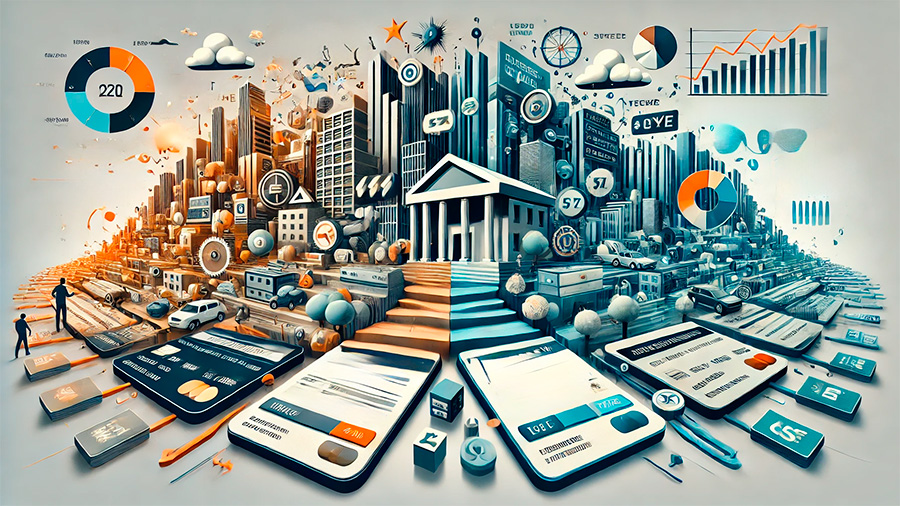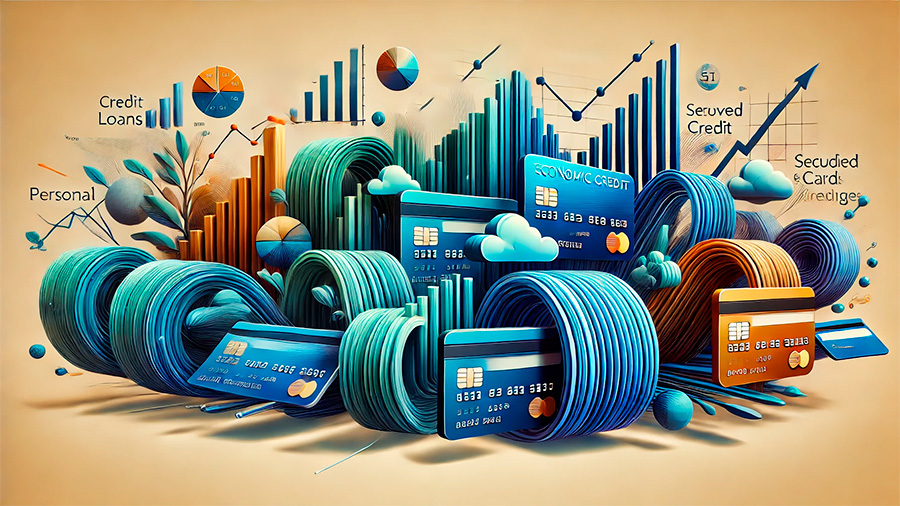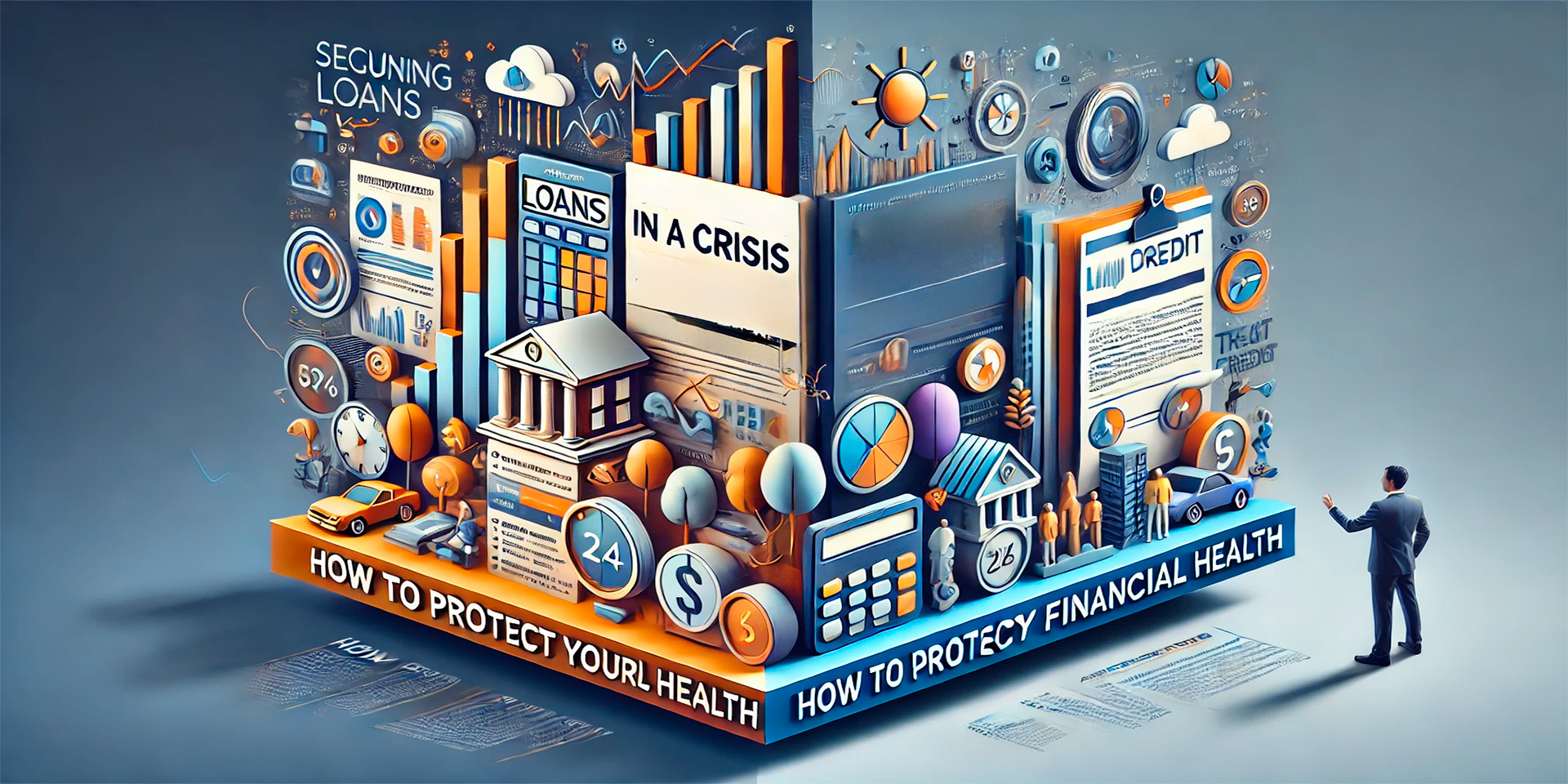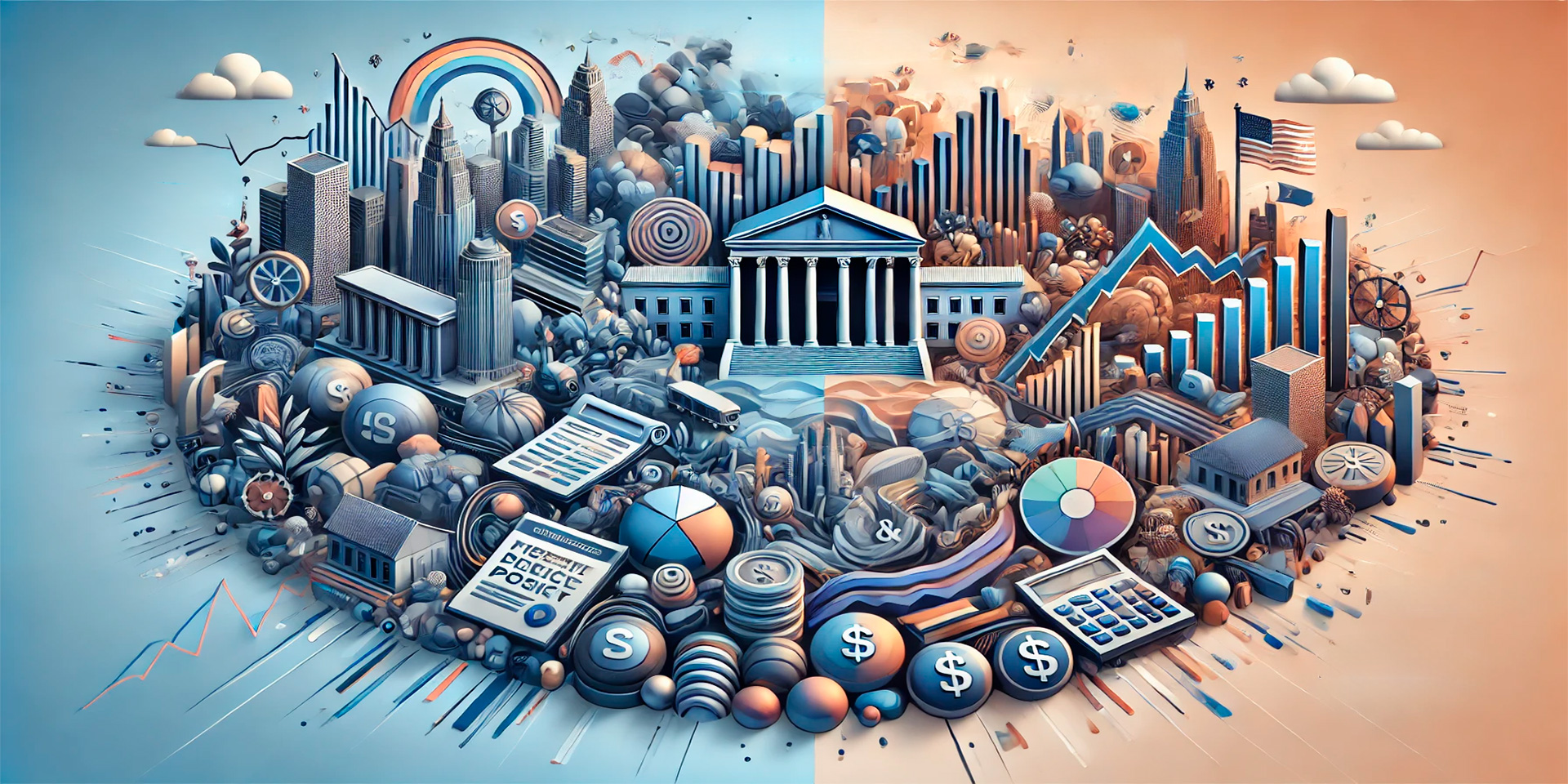Economic crises are disruptive events that not only affect businesses, employment, and financial markets, but also significantly impact individuals’ ability to access loans and credit. During a crisis, banks and financial institutions typically tighten their lending criteria, making it harder for borrowers to secure loans, credit cards, or other forms of financing. Understanding how economic downturns alter the lending landscape can help you prepare for financial challenges and find ways to maintain access to credit when you need it most. This article will explore how economic crises impact access to loans and credit, and what steps you can take to navigate these changes.
Why Banks Tighten Lending Criteria During Economic Crises
One of the most immediate effects of an economic crisis is increased caution among lenders. Banks and financial institutions become more risk-averse during periods of economic uncertainty, as the likelihood of borrower defaults increases. To protect their balance sheets, lenders often respond by tightening lending standards and making it more difficult for individuals and businesses to access credit.
Increased Risk of Defaults
Economic crises often lead to higher unemployment rates, wage stagnation, and financial instability for many households and businesses. As a result, the risk of borrowers defaulting on their loans or failing to make credit card payments increases. Banks, in turn, become more cautious about lending to individuals or businesses that may struggle to repay their debts during a downturn.
In response to this heightened risk, lenders may require higher credit scores, increase down payment requirements, or ask for more collateral to secure a loan. These stricter lending criteria can limit the pool of eligible borrowers, making it harder for those with lower credit scores or less financial security to obtain loans.
Liquidity and Capital Constraints
During economic crises, banks may also face liquidity constraints, meaning they have less available capital to lend. Financial institutions often experience increased demand for loans as individuals and businesses seek to cover cash shortfalls, while at the same time, they may face higher default rates and reduced income from existing loans. These factors can strain banks’ ability to extend new credit, leading to more conservative lending practices.
To preserve liquidity, banks may raise interest rates or fees on loans, making borrowing more expensive for consumers and businesses. Additionally, they may limit the types of loans they offer, focusing on lower-risk borrowers and reducing access to higher-risk products like unsecured personal loans or lines of credit.

How Loan Approval Criteria Change During a Crisis
As lenders tighten their criteria during an economic crisis, several factors become more important in determining whether you’ll qualify for a loan or line of credit. Understanding these criteria can help you assess your financial standing and take steps to improve your chances of securing a loan during tough times.
Higher Credit Score Requirements
One of the most common ways lenders manage risk during a crisis is by raising the minimum credit score required for loan approval. A higher credit score indicates a lower risk of default, so banks are more likely to lend to individuals with strong credit histories during uncertain economic periods. For borrowers with lower credit scores, it may become much more difficult to qualify for loans or obtain favorable interest rates.
If your credit score falls below the threshold set by lenders during a crisis, you may be denied credit, or you may only be offered loans with high-interest rates that could make borrowing more expensive. To improve your chances of approval, focus on maintaining or improving your credit score by paying down existing debts, making timely payments, and avoiding new credit inquiries.
Increased Down Payments and Collateral
Lenders may also require larger down payments or more collateral during an economic crisis to reduce their exposure to risk. For example, mortgage lenders may increase the minimum down payment percentage required for homebuyers, making it harder for individuals without significant savings to purchase a home. Similarly, for auto loans or business loans, lenders may require more collateral—such as property or equipment—before approving a loan.
These increased requirements can place additional financial strain on borrowers, particularly those who may already be struggling with reduced income or savings during a crisis. If you’re planning to apply for a loan, it’s important to be aware of these potential changes and prepare to provide more upfront capital or valuable assets as security.
Stricter Income and Employment Verification
Lenders often scrutinize income and employment status more closely during economic crises. They may require more thorough documentation to verify that borrowers have stable, reliable sources of income to ensure they can make their loan payments. If your income has been affected by the crisis, such as through reduced hours or temporary unemployment, it may become harder to qualify for loans or credit.
Self-employed individuals or those working in industries hit hardest by the crisis, such as hospitality or retail, may face additional challenges in proving their income stability. If you’re applying for a loan during a crisis, be prepared to provide detailed documentation of your income, such as pay stubs, tax returns, or bank statements, and demonstrate that your financial situation is stable.

The Impact of an Economic Crisis on Different Types of Credit
Not all types of loans and credit are equally affected by an economic crisis. Some forms of credit may become harder to access, while others may see changes in terms or interest rates. Below are some common types of credit and how they’re impacted during periods of economic uncertainty.
Mortgages and Home Loans
Mortgages are particularly sensitive to economic crises. Lenders may raise the minimum credit score required for approval, increase down payment requirements, and adjust interest rates in response to market conditions. In some cases, banks may even temporarily pause certain mortgage programs, such as those for first-time homebuyers or borrowers with low credit scores, in favor of lower-risk loans.
During a crisis, it’s crucial for homebuyers to have a strong credit score, sufficient savings for a larger down payment, and a stable income. Refinancing existing mortgages may also become more difficult, as lenders prioritize new loans and tighten their criteria for refinancing options.
Personal Loans and Lines of Credit
Unsecured personal loans, which don’t require collateral, are among the hardest types of credit to obtain during an economic downturn. Banks view these loans as high-risk since there’s no asset to recover if the borrower defaults. As a result, lenders may raise interest rates, limit the availability of personal loans, or only offer them to borrowers with excellent credit.
Similarly, lines of credit may become more difficult to access, as lenders reduce credit limits or increase interest rates to manage risk. If you rely on personal loans or lines of credit to cover emergency expenses, consider alternatives such as building an emergency fund or seeking secured loan options.
Business Loans
Small businesses are often hit hard during economic crises, and accessing business loans can become particularly challenging. Lenders may tighten their lending standards, requiring more collateral or imposing stricter requirements for revenue and profitability. For startups or businesses in industries affected by the downturn, such as travel or hospitality, securing a loan may be nearly impossible without a strong financial track record and significant collateral.
Business owners should be prepared to demonstrate the financial health of their company through detailed records, such as profit and loss statements, cash flow projections, and business plans. Additionally, seeking government-backed loans, such as those offered through the Small Business Administration (SBA), can provide alternative financing options when traditional lenders tighten their criteria.
Credit Cards
While credit cards may remain available during economic crises, issuers may reduce credit limits or increase interest rates to manage risk. Individuals with lower credit scores or those who have missed payments in the past may face higher interest rates on new credit cards or may struggle to qualify for premium cards with favorable terms.
If you rely on credit cards for everyday purchases or emergency expenses, it’s important to monitor your credit utilization and make timely payments to avoid further reducing your credit score. Additionally, consider paying down existing credit card debt to improve your financial standing and reduce the risk of lenders cutting your credit limit.
Steps to Improve Your Chances of Securing Credit During a Crisis
While economic crises make it more challenging to access loans and credit, there are steps you can take to improve your chances of approval and protect your financial health.
Maintain or Improve Your Credit Score
Your credit score is one of the most important factors lenders consider when approving loans or extending credit. During a crisis, having a strong credit score can make the difference between securing a loan and being denied. To improve or maintain your credit score, focus on paying all bills on time, reducing your credit card balances, and avoiding new credit inquiries.
Build Up Savings for a Larger Down Payment
If you’re planning to buy a home or secure a loan that requires collateral, having a larger down payment or savings reserve can improve your chances of approval. Lenders may require higher down payments during a crisis, so building up your savings can demonstrate financial responsibility and reduce the lender’s risk.
Explore Alternative Lenders
If traditional banks tighten their lending criteria, consider exploring alternative lenders, such as credit unions or online lenders, which may offer more flexible loan terms. Additionally, government-backed loan programs, such as FHA loans for homebuyers or SBA loans for businesses, can provide access to credit when other options are limited.
Conclusion: Navigating Loans and Credit During Economic Crises
Economic crises can make accessing loans and credit more difficult, as lenders tighten their criteria to manage risk. From higher credit score requirements to increased down payments and stricter income verification, securing financing during a downturn often requires more preparation and financial stability. By understanding how economic crises impact the lending landscape and taking proactive steps to improve your creditworthiness, you can navigate these challenges and maintain access to the credit you need during tough times. Whether you’re seeking a mortgage, personal loan, or business financing, staying informed and being prepared will help you make the best financial decisions during periods of economic uncertainty.




